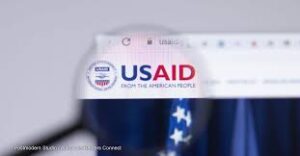“Trump administration extends foreign aid review for another 30 days”
The Trump administration has chosen to prolong its assessment of U.S. foreign aid, giving officials an additional 30 days to examine and potentially revise the country’s financial assistance to other nations. This extension comes after months of internal deliberations over the effectiveness, strategic value, and overall necessity of certain foreign aid programs.

Initially launched as a comprehensive review meant to align foreign assistance with President Trump’s “America First” agenda, the effort aimed to scrutinize whether U.S. funds were truly advancing national interests. According to administration officials, the objective is to ensure that taxpayer dollars are used efficiently and support programs that yield clear benefits for the United States, such as promoting security, economic growth, or diplomatic leverage.
While the review has been welcomed by some lawmakers and policy advocates who favor a more results-driven approach to foreign assistance, it has also sparked concern within humanitarian and diplomatic circles. Critics argue that the review could lead to significant funding cuts or a shift away from long-standing aid commitments, especially in fragile or developing regions. Some officials within the State Department and the U.S. Agency for International Development (USAID) have reportedly expressed unease about the potential consequences of reducing or reallocating aid.
The review originally had a tighter timeline, but the complexity of evaluating such a broad range of programs has caused delays. Aid packages vary widely in purpose, from health and education initiatives to military and counterterrorism support. A one-size-fits-all assessment has proven difficult, particularly when factoring in long-term impacts that may not be immediately measurable.

White House sources suggest the extra 30 days will allow the administration to gather more data and consult with relevant agencies and partners. During this time, senior officials are expected to continue reviewing funding allocations country by country, determining which programs are most aligned with U.S. foreign policy goals. The ultimate outcome may include budget reallocations, program reductions, or even complete withdrawal of support in some areas.
Despite the delay, administration spokespeople maintain that the review is not aimed at slashing aid indiscriminately, but rather at optimizing it. They emphasize that the United States remains committed to global leadership, though through a lens of strategic investment rather than open-ended generosity.
International observers and partner countries are watching closely, as changes in U.S. aid policy could have ripple effects on global health, education, and stability programs. For now, stakeholders await the final decisions, hopeful that the extended timeline will lead to a more thoughtful and effective foreign aid strategy.